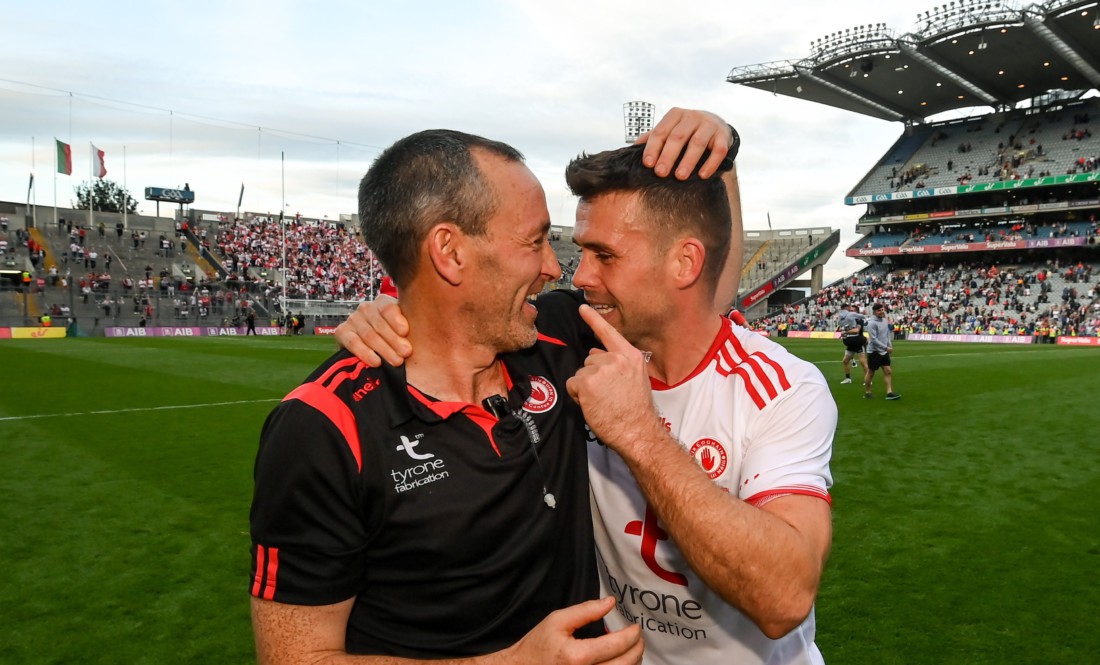THERE is nothing more important in performance and learning than feedback loops. A two-way dialogue between coach and player (or player and player), with the joint objective of getting better.
All my clients give me performance and mindset feedback after every game – it’s mandatory. Why? Because it creates improvement; it creates growth. Highlighting gaps in physical, mental, nutritional, technical is a sure fire way of getting better. And at the end of the day, that’s what we want – performance improvement. But it’s not easy.
Giving and receiving feedback is a highly sought after skill which troubles even the highest performing athletes. Growing up, we are taught to think of criticism as negative and praise as positive. However, this conditioning can be highly destructive. The sooner we can learn to reframe our understanding of feedback, the sooner we can unlock significant performance improvements.
The purpose of feedback is to gain an objective assessment of how to improve in the future. You should want to consciously seek feedback, to consciously learn, and to consciously improve your performances. To help you seek and receive better feedback, I have clients use the TAS framework described below:
T – Timely – feedback timing is crucial. It should be sought and delivered as near as possible post-performance, while still allowing the giver to maintain objectivity. For example, it may be better to ask a coach or mentor for feedback a few hours after the performance via a text message in order for them to have some time to review your performance objectively, rather than requesting in person immediately after the performance.
A – Actionable – feedback must be composed of factors that are controllable and can be improved upon. Any feedback that is not controllable (outside of the athlete’s sphere of control) should be discarded.
S – Specific – feedback should be specific. It should be clear and digestible. The feedback given should list specific observations such as skill or technical analysis or tactical observation. This will allow the receiver to record specific intentions for their next practice or performance that they agree can be under their control and therefore improved upon.
If the feedback received fits the TAS framework, it should be regarded as valuable. If you are able to give and receive valuable feedback, that is both objective and constructive, then not only individual but also team performances will improve.
Here is a Feedback Filter framework that will allow you to utilise objective, constructive feedback – from the right sources – to aid with your continuous long-term development. The purpose of ‘The Feedback Filter’ is to retain valuable and constructive feedback, while at the same time discarding unhelpful, subjective feedback which may harm future performances.
The Feedback filter is a two-way system into which feedback can be either deposited or discarded into either:
The questions to ask when deciding whether feedback belongs in the bank or the bin are as follows:
– is it coming from a coach or valued teammate interested in your long term development?
– is it coming from someone within your trusted circle?
– is it coming from someone whose opinions you value due to their own high performance or high performance past?
If the answers to these questions are no, then our advice is that you discard the feedback to the bin.
2. How was the feedback delivered and received?
– did it come during a practice or performance when the feedback giver was under stress?
– did it come in front of a wider group or was it delivered individually?
– was the feedback based on observation of performance or based on opinions about your personal demeanor or attitudes?
Preferably, feedback would be delivered in a low stress environment and on an individual level. If the feedback giver is someone with an interest in your long term development and you agree that this would be useful to you going forward – deposit the feedback received to the Feedback Bank. If you believe that the feedback does not come from an interest in your long term development and is not useful to future performances – discard to the Feedback Bin.
Receive quality journalism wherever you are, on any device. Keep up to date from the comfort of your own home with a digital subscription.
Any time | Any place | Anywhere












